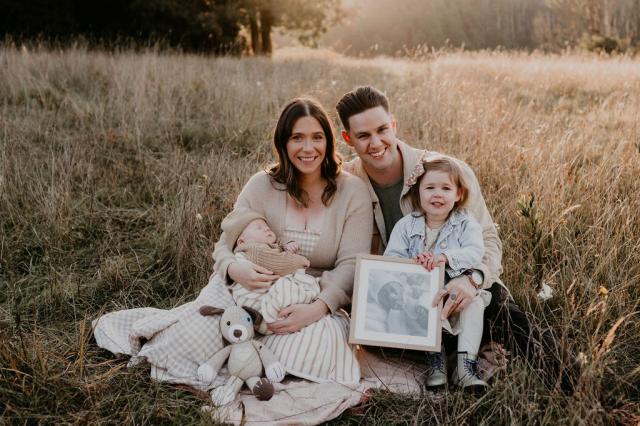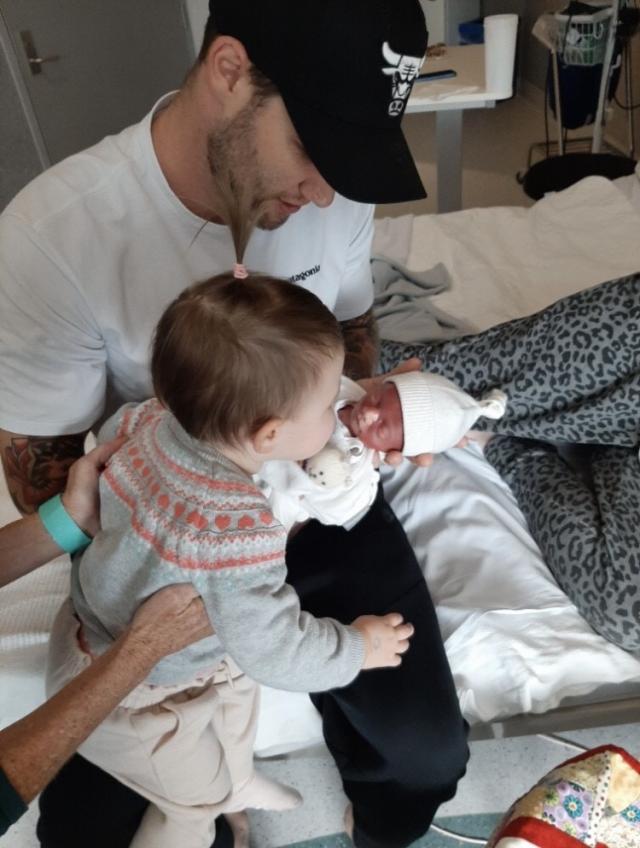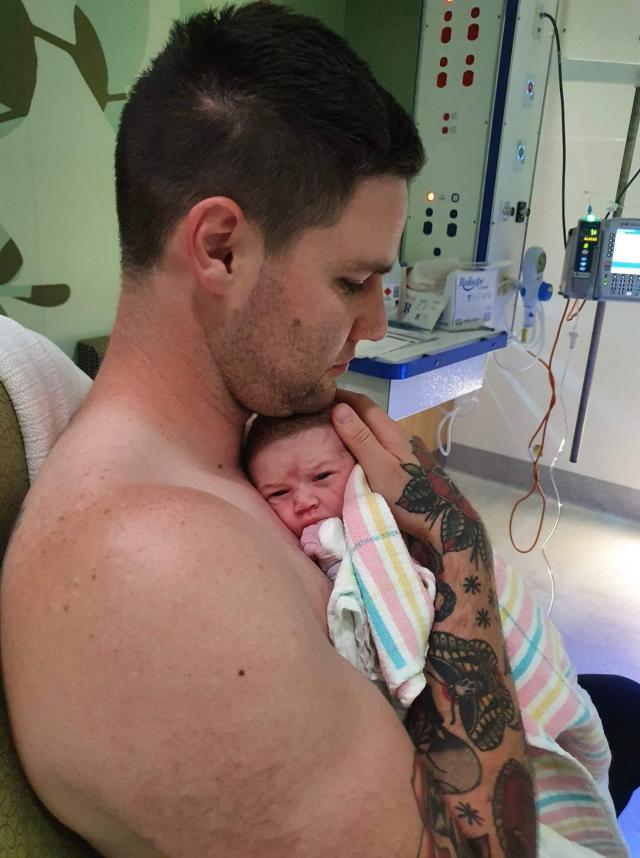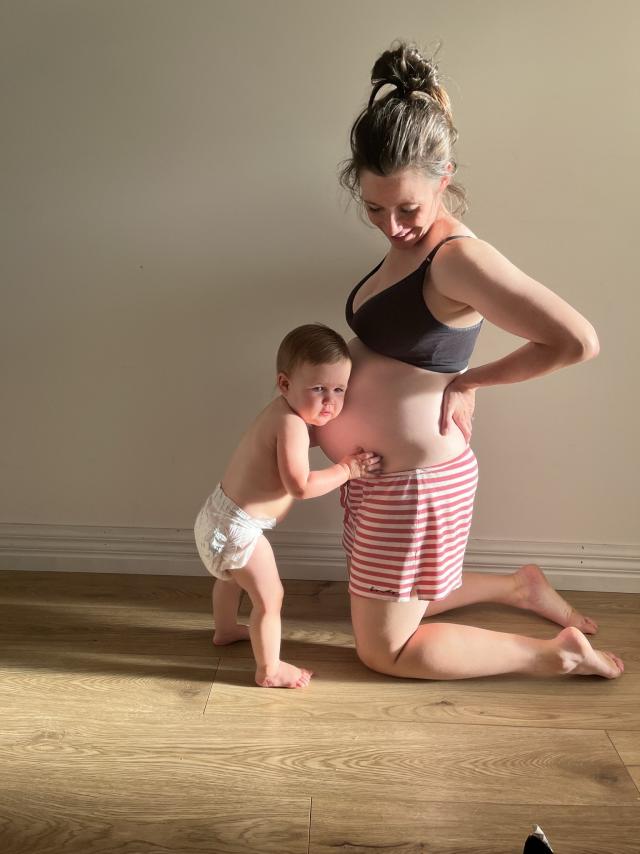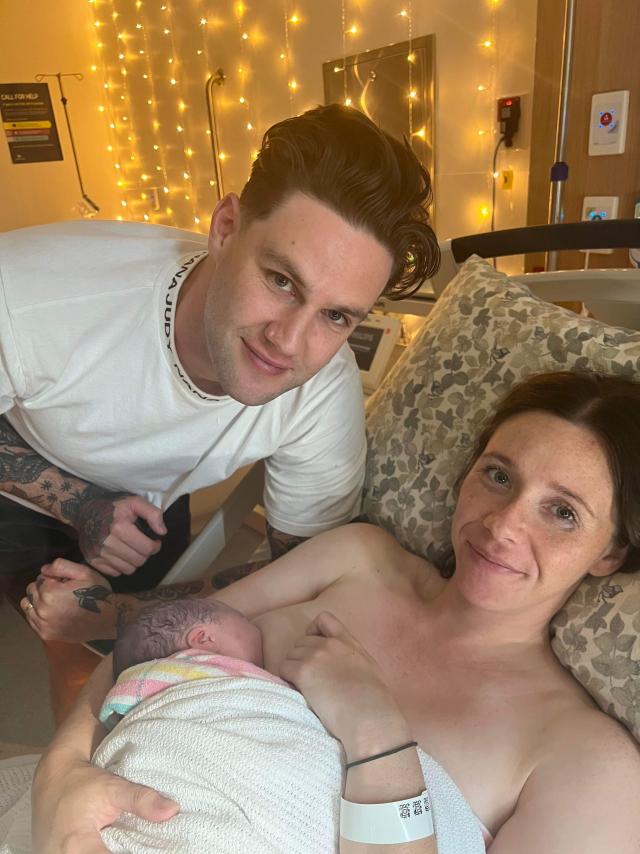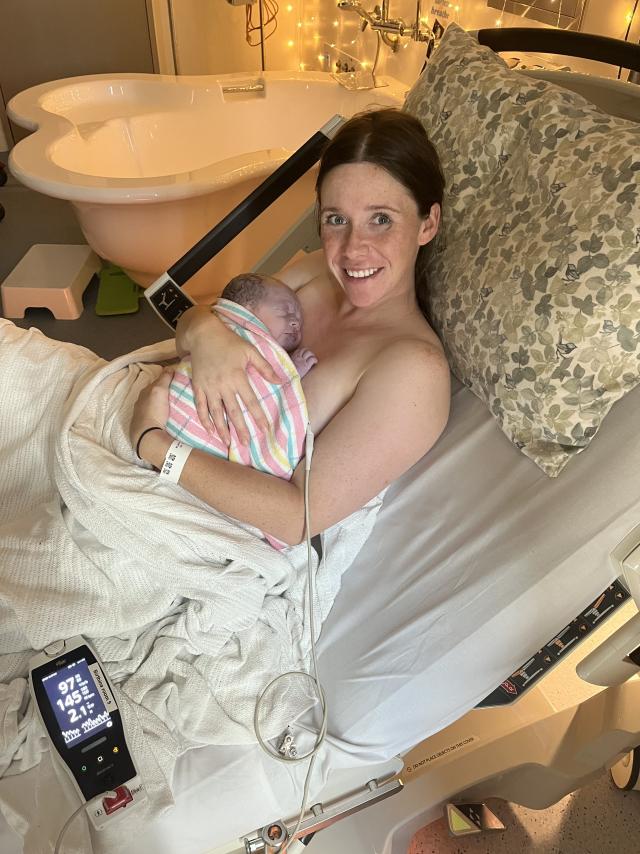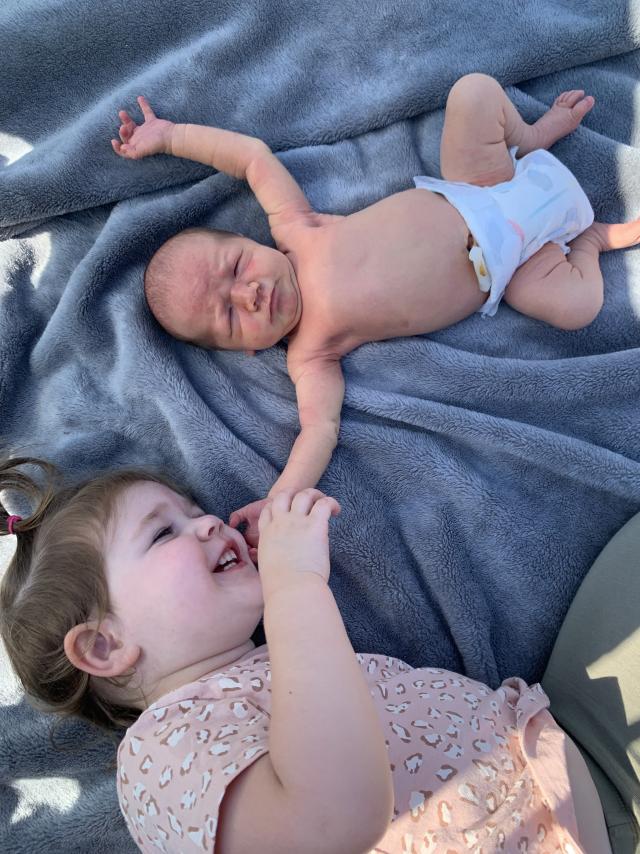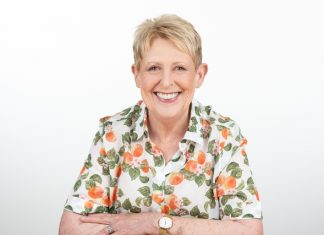By Casey Neill
Jacki O’Farrell had a cardiac arrest during her first birth and was unable to sit up for her first two weeks of motherhood. Her second baby was stillborn.
The Sunshine mum of three says there’s no silver lining to what she’s been through, but she’s determined to use her experience to support others.
Jacki fell pregnant with her daughter Charlie in 2020.
After finally being admitted to hospital after three days in labour, monitors meant to be clocking Charlie’s heart rate kept slipping off her tight tummy.
Medical staff broke her waters, placed a monitoring clip on Charlie’s head, and told her Charlie’s heart rate had dropped.
An anaesthetist performed an epidural and Jacki settled in to get some rest, armed with a button to press every 15 minutes for drug delivery.
The second time she pressed the button, her body felt drunk, but not her mind.
“I said to Luke, ‘I hate the way it’s making me feel, I feel really yuck when I press it’,” she said.
Jacki had suffered a dural puncture and was being inundated with drugs.
“My hand started going a bit numb. My mouth and tongue started to feel a bit similar,” she said.
“The last thing I remember hearing was ‘she’s turning blue’.”
Medical staff performed CPR on Jacki for 12 minutes.
“Luke witnessed a lot of the CPR, then someone took him out of the room,” she said.
“While that was happening I had an episiotomy and Charlie was forcepped out.
“Luke watched them do CPR for about a minute on her. Then he heard her crying, so his attention focused back on me.
“He was picturing a life without me. He was playing his life out, doing it by himself.”
Jacki woke up with “the worst headache”.
“It felt like someone was crushing my skull,” she said.
“My optic nerve was impacted. Everything was really blurry. I thought I was blind.”
Jacki was in ICU while a healthy Charlie was in NICU for monitoring.
“A midwife had the forethought to take a photo of Charlie. She held the phone up really close to my face,” she said.
Jacki was moved to high care and was finally able to hold Charlie – for about 10 minutes, laying horizontally.
“I was leaking spinal fluid from the epidural needle hole every time I sat up,” she said.
“At the end of the third day we finally got her and she didn’t leave my side.
“The first two weeks of motherhood were spent laying flat on my back.
“I’m quite maternal. Not being able to care for your baby was a massive hurdle.”
About six months later she was diagnosed with PTSD and medicated.
“I was trying to do everything in my power to process it so I could be a better mum to Charlie,” she said.
Jacki fell pregnant with Oakley when Charlie was about 10 months old.
“I was excited but then also terrified at the exact same time,” she said.
“I couldn’t have anything catastrophic happen again. I wouldn’t have been able to mentally deal with it.”
But at 31 weeks, she noticed a change in Oakley’s movements.
“We called him the hurricane baby,” she said.
“It was really easy for me to identify when the movements had reduced.”
Doctors confirmed there was no heartbeat.
“We just sat in the room wailing,” Jacki said.
“We couldn’t cry hard enough.
“It hit me like a shovel to the face, ‘I have to give birth, I still have to have the baby’.
“I was just screaming ‘I don’t want to do it’.
“How am I meant to get into the zone for labour when I’m dealing with the loss of my child?
“I never thought that would happen to us, especially after what happened with Charlie.
“You focus on one problem and then another one surprises you.”
They had a night at home and returned for induction the following day, with wonderful support from the hospital.
“He was breech so his little bum came out first,” Jacki said.
“I was able to stand in the shower. Luke caught him.
“I could bring him up onto my chest, which I missed out on with Charlie.
“We were able to have a positive birth experience, in how the labour went.
“I took a lot from it and found it really empowering.
“We sat in the shower. I put him down and we could have a look at him.
“He was completely perfect.”
A postmortem was inconclusive.
“He moved around so much, the cord was around his neck when he was born, and there was a knot in the cord,” she said.
“It’s nothing that anyone could have prevented or changed.”
Their families met and held Charlie, and then they went home.
“That was one of the most challenging things to experience. Saying goodbye,” she said.
“You never want to leave your child anywhere alone.
“I left my baby by himself.”
Having to show up for 18-month-old Charlie every day helped Jacki through her grief.
“We have no idea what we’re doing in terms of how to talk about grief with a toddler,” she said.
“I have no idea what the answer is there, but we just do what we feel comfortable with.”
An urn containing Oakley’s ashes and a photo of their lost son are on display at home. They bought a baby oak tree to mark the first anniversary of his birth.
“When we have our forever home we can plant that and let it grow really big and sit underneath it,” Jacki said.
Four months after losing Oakley, she fell pregnant again.
“His due date was four days after Oakley’s first anniversary,” she said.
“I just didn’t want to be pregnant on or after Oakley’s anniversary. I wanted them separate.”
She was booked for an induction the week before and was in active labour for three hours before welcoming Conor.
“I could not believe the difference in recovery from Charlie,” she said.
“I kept saying ‘I feel like I could run a marathon’.
“You felt like you could mother a child the way you wanted to and should be able to.”
Jacki now dedicates her spare time to raising awareness and money for Stillbirth Foundation Australia and Still Aware through her small business BHOOMI Babe.
She sells breastfeeding blankets and burp cloths and donates $5 from each purchase to the charities.
“You look for the silver lining and there is no silver lining, so what’s the next best thing I can do?” she said.
“It’s not going to change anything for us, but it might help someone else.”
To others who’ve lost a baby, Jacki says “it’s more common than people realise” and “it’s OK to feel what you’re feeling”.
To their friends and family, Jacki says to avoid minimising their experience.
“We did have friends who just came and sat on our kitchen floor and said ‘what happened, how are you doing?’ and just being comfortable sitting there watching us cry,” she said.
“Just asking ‘are you happy to talk about it?’ is a good place to start.”


